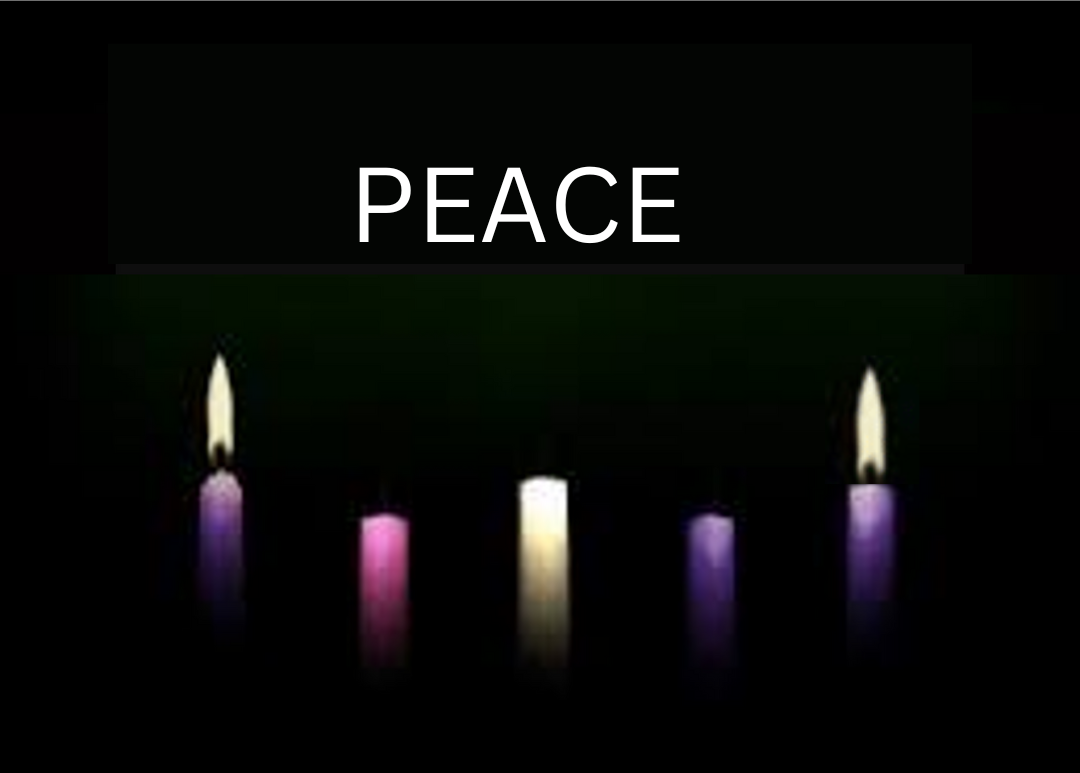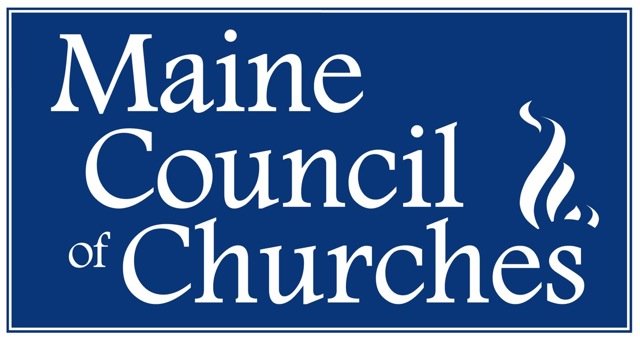Advent 2

For five weeks every year, songs about the incarnation of Christ can be heard playing everywhere—on your radio and TV, at the car wash, in the grocery store. And just about everybody knows the words. They might not be able to tell you what the first book of the New Testament is (just for the record, it’s Matthew), but they can tell you that all is calm, all is bright on a silent, holy night in the little town of Bethlehem where away in a manger the little Lord Jesus lay down his sweet head while certain poor shepherds lay in fields listening to angels on high singing “Gloria in excelsis deo,” and three kings of the orient bearing gifts traverse afar. Christmas carols are, after all, the best known of all religious music, and these days, most people get the only theology they have from the carols that they sing. This year our Advent blog series will explore a favorite carol each week, listening to familiar words with fresh ears and learning the story of when, where, and why they were written. (We also have an Advent message for December’s National Gun Violence Prevention Sabbath available at this link.)
Silent Night
Silent night, holy night, all is calm, all is bright.
Round yon virgin, mother and child, holy infant so tender and mild,
Sleep in heavenly peace, sleep in heavenly peace.
Silent night! Holy night! Shepherds quake at the sight.
Glories stream from heaven afar. Heav’nly hosts sing, “Alleluia!
Christ the Savior is born! Christ the Savior is born!”
Silent night! Holy night! Son of God, love’s pure light.
Radiant beams from Thy holy face with the dawn of redeeming grace.
Jesus, Lord, at Thy birth! Jesus, Lord, at Thy birth!
Silent night! Holy night! Wondrous star, lend thy light.
With the angels let us sing, “Alleluia” to our King,
“Christ the Savior is born! Christ the Savior is born.”
The story is a familiar one. “Silent Night” was sung (in German, Stille Nacht, heilige nacht) for the very first time on Christmas Eve, 200 years ago, in a tiny Alpine village church in Austria, accompanied only by the priest’s guitar. That story is true, though legends that have grown up around it are not—for example, there’s no evidence that the church organ was broken that night, and the priest didn’t write the words that afternoon—he’d written them as a poem, two years earlier. But, as is often the case with history, the true story is even more interesting than the legends
In 1792, the first year of the dreadful Napoleonic Wars that devastated Europe, an unmarried woman, an embroiderer in Salzburg, Anna Schoiberin, gave birth to a baby boy whom she named Joseph. The baby’s father, Franz Mohr, had abandoned Anna months earlier. As the boy grew, it became clear he was very bright and musically gifted, so the local priest made sure he received a good education and had the opportunity to sing in choirs and play the violin. As a teenager, the boy studied at a Benedictine monastery and decided to become a priest, but because his birth was “illegitimate,” he had to get a special dispensation from the Pope before he could enter seminary. In 1815, when he was just 22 years old, Joseph Mohr was ordained a priest; it was the same year that the Napoleonic Wars that began the year he was born finally came to an end.
Just a year after he was ordained, Mohr wrote the poem, “Stille Nacht” and two years after that asked his good friend, Franz Gruber, a local schoolteacher and the organist at the church, to write a tune for it that Joseph could play on his guitar for Christmas Eve mass that night. It only took Franz a few hours to write the music, and together the two friends, along with the church choir, sang “Stille Nacht” on Christmas Eve in 1818.
“Silent Night” grew in popularity over the years, sung by traveling musical groups in Austria and Germany and eventually carried across the ocean by waves of German immigrants arriving on America’s shores. Meanwhile, Joseph Mohr lived out his life in obscurity, a local priest known for his extraordinary generosity: he gave nearly all his salary away to charity; he established a scholarship fund for children from poor families; and he set up a system for the care of the elderly. In December 1848, one week before his 56th birthday, Joseph Mohr died quietly at home, and was buried near the church where he had first sung “Silent Night.”
It wasn’t until eleven years after Mohr’s death that the carol was translated into English, by John Freeman Young—a local boy from right here in Maine! Born in Pittston, Maine, just south of Augusta, in 1820 (two years after Joseph Mohr sang “Silent Night” for the first time), Young was an assistant rector at Trinity Episcopal Church in New York City in 1859 when he translated “Stille Nacht” into English. Just as the original song had been born in the midst of war, the English translation was born as the United States hurtled toward its own bloody Civil War. (When that war was over, John Young would be named Episcopal bishop of Florida (a long way from home for a Maine boy!), where he oversaw the rebuilding of churches destroyed during the fighting. While in Florida, he founded the first Episcopal church exclusively for Americans of African descent and established a Spanish language church for Cuban immigrants.)
Mohr and Gruber’s carol, written in the aftermath of one horrible war, and translated into English on the eve of yet another, has become an international treasure whose message of heavenly peace transcends the bounds of nation, race, language, or culture.
Ninety-six years to the day after “Silent Night” was sung for the first time on that snowy Christmas Eve in the Austrian alps, it was sung on another cold, quiet Christmas Eve, 600 miles to the west in France, in the midst of a war that killed 17 million soldiers and civilians and wounded another 19 million, a war so terrible it was called “The War To End All Wars,” World War I. And when “Silent Night” was sung that Christmas Eve in 1914, a miracle happened. Peace happened.
During World War I, soldiers on the Western Front lived in 12,000 miles of trenches that stretched from the North Sea coast of Belgium through France to the Swiss border. The trenches were filthy, infested with rats, bugs and lice, and in December of 1914, they were clogged with knee-deep mud caused by weeks of cold, steady rain. In between the two opposing lines of trenches was a desolate space 60 to 150 yards wide called “No Man’s Land.” This is where the fighting and bombing happened, where wave after wave of soldiers who climbed out of their trenches ran toward their enemy while that enemy shot at them. It was a futile and deadly stalemate that led to unimaginable carnage. The two sets of trenches were so close that the soldiers could hear their enemies talking, smell what they were cooking, and hear what they were singing.
On Christmas Eve 1914, the rain finally stopped and though it was bitterly cold, at least the mud in the trenches had dried up and the soldiers’ clothes weren’t soaked anymore. As the sun set, the British forces settled down to eat their rations out of metal cans, and to open the special Christmas gift that the royal family sent to every soldier: a special tin containing tobacco, chocolate, sweets, pencils, a Christmas card, and a photograph of Princess Mary.
It was a beautiful moonlit night, there was thick white frost, and in some places, snow across the ground. Stars sparkled in the clear sky. As the night wore on, sentries at many points along the Western Front reported seeing something across No Man’s Land—small Christmas trees decorated with ribbon and lit candles, set on top of the parapets of the German trenches. And then, in the quiet stillness of that cold Christmas Eve, they heard singing. The words were German, but the tune was familiar. Stille nacht, heilige nacht. When the Germans finished singing Joseph Mohr’s carol, the British broke out in cheers. Used to returning fire, they now replied in song, with the English version of the carol. Silent night, holy night.
First the Germans would sing one of their carols and then we would sing one of ours, until when we started up ‘O Come, All Ye Faithful’ the Germans immediately joined in singing the same hymn to the Latin words, “Adeste Fideles.” And I thought, well, this is really a most extraordinary thing – two nations both singing the same carol in the middle of a war.”
Graham Williams, Fifth London Rifle Brigade
When dawn broke on Christmas morning, something even more remarkable happened. Germans held up signs saying, “You no shoot, we no shoot,” and “Merry Christmas.” Then, unarmed German and Allied soldiers tentatively emerged from their trenches and cautiously walked toward one another across No Man’s Land to wish each other a Merry Christmas.
We shook hands, wished each other a Merry Christmas and were soon conversing as if we had known each other for years. Here we were, laughing and chatting to men whom only a few hours before we were trying to kill.
Corporal John Ferguson, Seaforth Highlanders
One German took a chance and jumped up on top of the trench and shouted out, “Happy Christmas, Tommy!” So of course, our boys said, ‘If he can do it, we can do it,’ and we all jumped up. A sergeant major shouted ‘Get down!’ but we said, ‘Shut up, Sergeant, it’s Christmas time!’ And we all went forward to the barbed wire. As a sign of their friendliness, the Germans put up a sign saying ‘Gott mit uns’ which means ‘God is with us’ in German. So we put up a sign in English saying, ‘We got mittens, too.’ I don’t know if they enjoyed that joke.
Private Frank Sumter, London Rifle Brigade
One of the Germans came out of the trenches and held his hands up. Our fellows immediately got out of ours, and we met in the middle, and for the rest of the day we fraternized, exchanging food, cigarettes, and souvenirs. The Germans gave us some of their sausages and we gave them some of our stuff. The Scotsmen started the bagpipes and we had a rare old jollification, which included football in which the Germans took part. The Germans expressed themselves as being tired of the war and wished it was over.
Sergeant Major Frank Naden, 6th Cheshire Territorials
One of the things that this Christmas truce allowed both sides to do was bury their dead. Bodies of the slaughtered had been lying in No Man’s Land for days or even weeks because it was too dangerous to go out and retrieve them for burial.
The joint burial service was most wonderful. Chaplain Adams arranged the prayers, and the 23rd psalm was read one verse at a time, first in English by our Padre, then in German by a boy who was studying for the ministry. It was an extraordinary and most wonderful sight… one [we] will never see again.
Lieutenant Arthur Penham-Burn, 6th Gordons
As the sun set on Christmas, we retreated to our respective trenches. The war resumed on December 26 at 8:30am when I fired three shots into the air and raised a flag that read “Merry Christmas.” My German counterpart raised a flag that read, “Thank you.” We each mounted our parapets, saluted each other, and returned to our trenches. My counterpart then fired two shots in the air and the war was on again.
Captain Charles Stockwell, 2nd Royal Welch Fusiliers
And the war was on again. In some ways, doesn’t this sound like what happens in our world every Christmas? We all pause for one beautiful, silent, holy night, recognize the humanity in each other—even in our enemies, believe in the angel’s message of peace on earth and good will toward all—yet the very next day, that feeling vanishes and the “war” is on again.
But the hope of Advent is the hope for a new earth, where the glory of the Lord shall be revealed and all people shall see it together, shall see that we human beings are not born to war, and that the Prince of Peace whose coming we celebrate, is still at work in this world.
Every Sunday, in churches all around Maine, people stand, step across the aisle, and exchange a sign of Christ’s peace. May those words of peace have special meaning this Advent as we remember those who had the courage to step across No Man’s Land, in the Spirit of the Prince of Peace, on that silent, holy night one hundred nine years ago.
This clip from the 2005 film “Joyeux Noel” depicts how the World War I Christmas truce began on Christmas Eve 1914 when soldiers sang “Silent Night” across No Man’s Land

